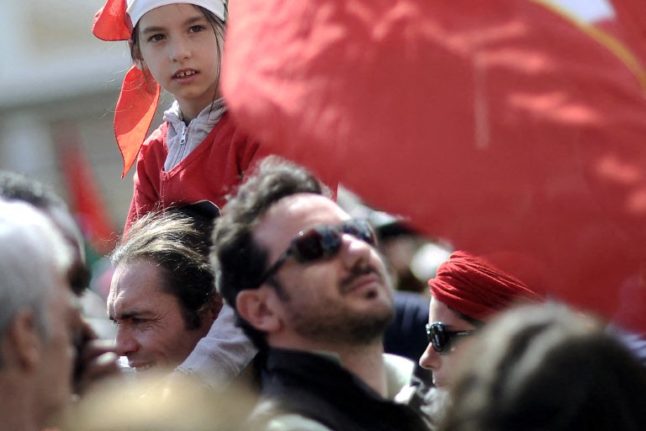February 14th is known as Valentine’s Day all over the world, and many believe the tradition has its roots in Italy.
But you may be more surprised to hear that the famously romantic country also celebrates singledom on February 15th.
The day after Valentine’s has been designated La Festa dei Single (Singles’ Day) or Festa di San Faustino (Feast of San Faustino); an occasion first thought up by lifestyle site La Vita da Single (Single Life) in 2001.
While it started out as something of a joke, the annual celebration of single life has become increasingly popular and almost two thirds of single Italians do something to mark the Festa dei Single, according to a survey from consumer federation Federcoopesca-Confcooperative published in 2017.
READ ALSO: Did Valentine’s Day really originate in Italy?
Events marking the occasion take place in many of Italy’s big cities, ranging from sociable dinners for the happily single to speed-dating events for those looking for love.
But why San Faustino?
Not a lot is known about Faustino, who together with his brother Giovita was martyred in the second century, but the medieval knight has become the patron saint of single people.
The brothers, born into a wealthy family, became knights they converted to Christianity, preaching in their hometown of Brescia and across Lombardy.
When they refused to worship or make sacrifices to the pagan gods, local nobles got angry, and the emperor ordered the pair to be put to death.
Legend says that the emperor Hadrian tried to have them killed several times, but they survived, supposedly thanks to God’s protection. First, Faustino was given to lions, but they sat at his feet instead of devouring him – a miracle which inspired several spectators to convert to Christianity.
READ ALSO: Dear Juliet: The Verona women who answer thousands of letters of heartbreak
The brothers were then ordered to be burned at the stake, but the flames had no effect, and when they were cast out to sea on a boat, the vessel simply brought them back to shore. Eventually however, the brothers’ luck run out, and they were beheaded on February 15th.
As well as the proximity of this date to Valentine’s Day, there is another reason San Faustino is thought to look out for single people. As a priest, he is said to have acted as a bit of a matchmaker, helping young women find partners.
And what’s more, the name ‘Faustino’ comes from the Latin word for ‘luck’, so his death-date is thought to be a sign of hope for those looking for love.
“On San Faustino, we care for single people who have spent Valentine’s Day alone, by dedicating the following day to them,” the event’s creators wrote on the Vita da Single blog.
But the event has a serious side, with organizers explaining that as well as celebrating the positives of single life, it aims to “give a voice to the issues of living alone”.
So in addition to the aperitivos and dinners taking place across the country, organizers also hope to stimulate discussion over issues including higher living expenses for those living alone – a 64 percent increase, according to consumer organization Coldiretti – and the difficulties of raising children alone or adopting as a single person in Italy.



 Please whitelist us to continue reading.
Please whitelist us to continue reading.
Member comments